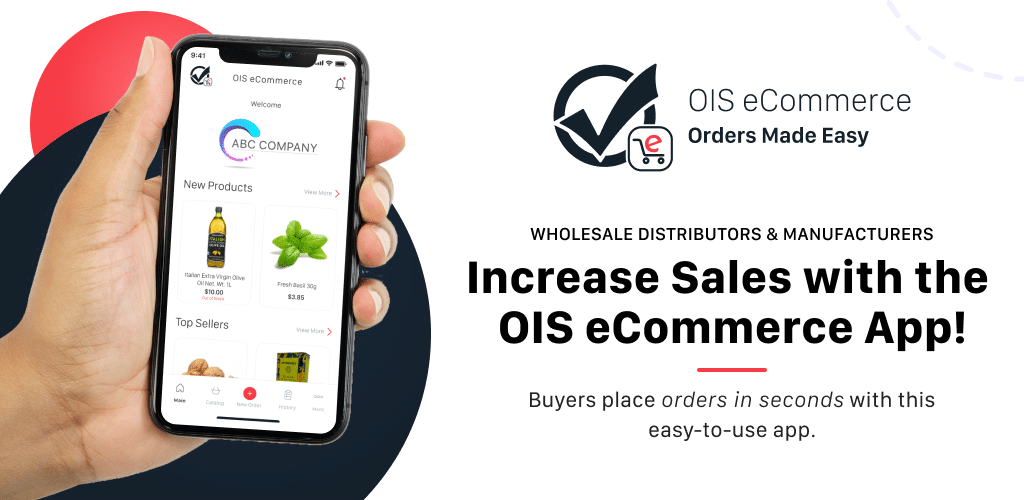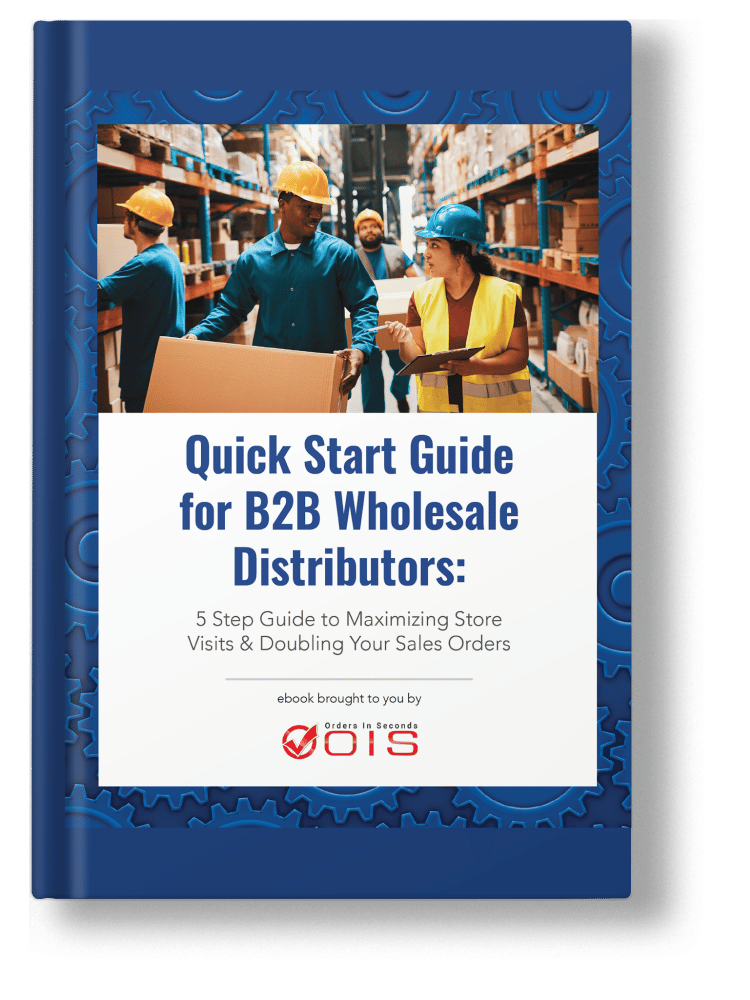At this point, it’s very clear that having a B2B ecommerce platform is essential for B2B business. It offers a better experience for buyers and opens up significant opportunities for sellers. However, despite these benefits, many B2B organizations can encounter a common issue when implementing it: resistance from their sales representatives.
This resistance is understandable since it’s something new for the sales team and may initially appear threatening to their roles. However, it’s important to address this resistance and create opportunities for them to see that the implementation of e-commerce will not replace them but rather make their jobs easier and provide additional benefits.
So, how can organizations handle this resistance and help sales representatives recognize the advantages of e-commerce? In this blog post, we will explore strategies and approaches to overcome resistance, foster acceptance, and enable sales teams to embrace the integration of e-commerce, ultimately leading to increased success for both the organization and the sales representatives themselves. Let’s dive in!

Understanding Sales Representatives’ Concerns and How to Address Them
Sales representatives play a vital role in the success of any business-to-business (B2B) organization. Ensuring their happiness and motivation is crucial for achieving great results when implementing an eCommerce platform. To achieve this, it is important to understand their concerns, which are:
- Job Security
- Earnings and Incentives
How can you address these concerns? The solution is pretty straightforward: First, educate and train sales representatives to adapt to the B2B eCommerce model and understand the advantages of having a platform that sells 24/7. Second, make sure salespeople receive benefits and incentives through the platform.
Keep in mind that implementing these solutions can be challenging. It requires developing a strategy that suits your company and sales force, considering their unique needs and situation.Good news is that there are steps you can follow.

3 Steps to Help Your Sales Team Embrace B2B eCommerce
1. Education
When we encounter something new in our lives, we often feel apprehensive because we don’t know what to expect. It’s the fear of the unknown. This is where your journey begins. The first step is to educate your sales force about the new B2B platform you are about to implement whether it is a B2B eCommerce app or other.
Start by explaining the need for B2B eCommerce in today’s world and that the decision to implement one in the company was not made on a whim; it was based on facts. Try to use statistics.
For example, Information similar to that will help them get the bigger picture.
The second key point to emphasize is that implementing this new B2B ordering platform is not meant to replace them. It is a tool designed to support the company’s growth and success. Make it clear that the goal is to enhance their capabilities, not diminish their importance.
Finally, it’s important to convey that B2B eCommerce requires investment. This investment needs to come from somewhere within the organization, which means compromises might need to be made to accommodate it.
Key Points for Sales Education:
- Ensure sales reps understand the competitive advantage of having a high-quality B2B eCommerce website.
- Clarify that the eCommerce channel is a tool available to the sales team, not a replacement for their role.
- Emphasize the significant investment required for B2B eCommerce implementation.

2. Incentives
Now let’s delve into the part that most interests your sales team: their earnings. The approach you choose will depend on your profit margins and business model. Fortunately, there are several effective ways to incentivize sales reps without compromising your bottom line.
The first method is very straightforward: create a commission structure that rewards sales agents for sales generated through digital channels. By offering commissions for sales closed through your eCommerce platform, sales reps have the opportunity to earn more.
Regardless of the commission model of your choosing, two important steps need to be taken. First, the website should support sales reps in selling more effectively. Second, reps should be compensated for bringing in customers who now make purchases online, as well as for upselling to customers who previously made limited online purchases.
Another approach is to encourage healthy competition among your sales representatives. This not only boosts motivation but also facilitates the adoption of B2B eCommerce. For instance, you can introduce competitions where sales reps strive to meet daily or weekly online B2B sales goals that drive customer adoption of the eCommerce site.
Metrics such as the number of new registered users, quotes, and online orders created within a specific timeframe can inspire everyone to explore new ways of introducing customers to the available online tools.
Providing bonuses for sales representatives who meet or exceed their weekly goals is another valuable incentive. To ensure maximum motivation, it’s important to clearly define the metrics being measured and communicate the corresponding bonus amounts.
Key Points for Incentives:
- Create a commission structure that rewards sales agents for sales generated through digital channels.
- Encourage healthy competition among sales representatives to drive customer adoption of the eCommerce platform.
- Provide bonuses for sales reps who meet or exceed weekly goals, with clear metrics and bonus amounts communicated.

3. Adapting to their new role
With a clear understanding of the significance of eCommerce and its potential to enhance their earnings, it’s crucial for your sales team to recognize that their role as salespeople is evolving and they must learn how to approach B2B sales differently.
For instance, did you know that according to Forrester 68% of B2B buyers now prefer conducting business online rather than with a salesperson? And when they do engage with sales, they expect a problem-solving, consultative experience?
This insight provides a valuable clue for your sales team: they need to prepare for these types of situations. The most successful B2B sellers are mobilizing their sales teams as agents who not only excel in closing sales and converting leads through traditional channels, but also guiding eCommerce customers, addressing their technical or pricing inquiries.
Furthermore, it’s crucial for your sales team to understand the possibilities offered by eCommerce channels. These platforms provide opportunities to automate pricing negotiations, upselling, cross-selling, and contract terms throughout the digital experience. By leveraging these capabilities, you can witness increases in average order size and customer lifetime value.
Lastly, the adoption of eCommerce can provide your sales team with more time to focus on important tasks. By streamlining certain processes through the platform, they can allocate their time and efforts towards building customer relationships, pursuing strategic opportunities, and enhancing their consultative selling skills.
Key Points for Adapting to Their New Role:
- Mobilize your sales team as hybrid agents who excel in both traditional sales channels and B2B online sales.
- Help them understand the possibilities offered by eCommerce, such as automated pricing, B2B cross-selling and upselling, and contract management, resulting in improved order sizes and customer value.
- Remind them about capitalizing on the time saved through eCommerce adoption to focus on relationship-building, strategic pursuits, and honing consultative selling skills.
In Conclusion
Successfully implementing an eCommerce platform in your business is all about effective communication with your sales representatives. By addressing their concerns, providing the right education, offering incentives, and helping them adapt to their evolving role, you can ensure a smooth transition and drive success for both the organization and the sales team.
Remember, it’s crucial to convey the benefits of B2B online ordering, reassure sales reps that it complements their efforts, and empower them to leverage the platform to enhance their earnings. With the right approach, your sales team will embrace eCommerce and contribute to the growth and profitability of your business.
If you want to know how Orders in Seconds can help you sell more with our OIS eCommerce App, you can schedule a free demo today!





